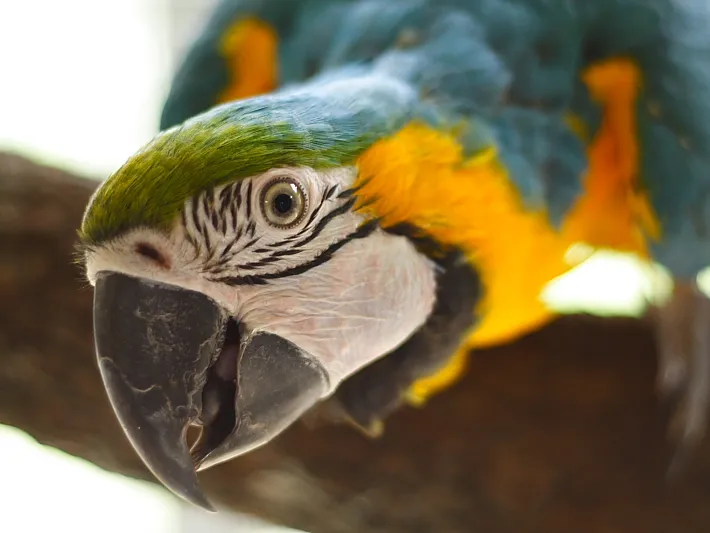Pet bird owners often develop deep emotional connections with their feathered companions, and this affection is mutual. Birds, especially popular species like parrots and macaws, can form strong bonds not just with each other but also with humans and other household pets. Understanding pet bird bonding and social behaviors is key to providing a healthy, enriching environment that mimics their natural flock dynamics.
This reciprocal relationship enhances the joy of bird ownership, making interactions fun and rewarding. For instance, many owners report their birds greeting them enthusiastically upon returning home, demonstrating trust and attachment built over time.
Social Behaviors Across Bird Species
Different bird species exhibit varying levels of social orientation, influenced by their wild instincts. Flock-based birds such as parrots, chickens, canaries, and pigeons thrive in groups, constantly interacting with flock members for safety and companionship. In contrast, raptors like hawks and owl behaviour are more solitary, relying less on social flocks and more on individual hunting prowess.
Debra Turner, aviary manager at the Schubot Center for Avian Health at Texas A&M College of Veterinary Medicine & Biomedical Sciences, emphasizes these differences. “Parrots, chickens, canaries, and pigeons are all very flock oriented. Raptors, like hawks and owls, are not as social or flock oriented,” she notes.
As prey animals in the wild, most pet birds remain vigilant around unfamiliar people or changes in their environment. This alertness helps them survive but can make introductions to new family members challenging. Patience and gradual exposure are essential to ease their nerves.
 A pet macaw looks at the camera
A pet macaw looks at the camera
How Hand-Raised Birds Imprint on Owners
Hand-rearing pet birds by humans often leads to imprinting, where the bird views its owner as a flock member—or even a mate. Dr. Sharman Hoppes, professor emerita at the Schubot Center, explains: “Birds see their owners as part of the flock. This can lead to a very close bonding relationship that is fun and entertaining in our homes.”
This imprinting fosters playful behaviors like preening, vocalizing, and perching on shoulders. However, it can sometimes trigger mate-like responses, including excessive nesting, chronic egg-laying, or territorial aggression. For female birds, this might result in health complications such as cloacal prolapse, where the reproductive tract protrudes, or hypocalcemia from calcium depletion due to overproduction of eggs.
Owners of species like blue and gold macaw behavior may notice heightened protectiveness, leading to bites toward perceived threats, such as strangers approaching too closely or even defending their cage vigorously.
To manage these dynamics responsibly, provide balanced lighting cycles, a varied diet rich in calcium sources like cuttlebone, and regular veterinary check-ups. Consulting an avian specialist can prevent these issues from escalating.
Addressing Stress in Solitary Pet Birds
Flock-oriented birds evolved to socialize with their own kind, so keeping a single bird confined all day can induce stress, feather plucking, or vocal distress calls. Fortunately, many adapt by incorporating humans and other pets into their “flock.”
Hoppes recommends: “Having other animals in the home and lots of activities for them to do (such as enrichment, toys, foraging for food, etc.) will help keep them busy when alone.” Interactive toys, puzzle feeders, and out-of-cage time promote mental stimulation. Dogs and cats can become flock mates if supervised introductions build positive associations.
Rotate toys weekly, offer safe foraging opportunities with hidden treats, and ensure spacious aviaries. These practices not only reduce loneliness but also strengthen the pet bird bonding experience.
Long-Term Benefits of Healthy Bird-Human Bonds
While pet birds differ from mammalian pets like dogs or cats, their social needs parallel those of any companion animal—requiring attention, routine, and empathy. Strong, healthy bonds lead to longer lifespans, vibrant personalities, and fewer behavioral problems.
Prioritize avian-specific care: annual wellness exams, species-appropriate diets, and environmental enrichments tailored to their social instincts. If issues like aggression or reproductive problems arise, seek advice from certified avian veterinarians promptly.
In summary, fostering pet bird bonding through understanding social behaviors creates lifelong companionship. Start with observation, provide flock-like interactions, and enrich their world for optimal well-being.
References:
- Texas A&M College of Veterinary Medicine & Biomedical Sciences, Schubot Center for Avian Health: vetmed.tamu.edu/schubot
- Pet Talk series: vetmed.tamu.edu/news/pet-talk
- Insights from Debra Turner and Dr. Sharman Hoppes, avian experts.
